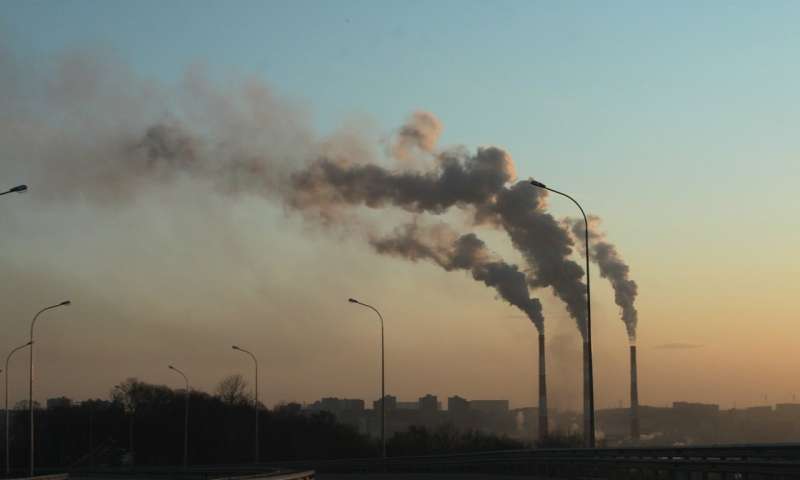Credit: CC0 Public Domain
A key figure in the United Kingdom's decision to legislate a climate change target of net zero emissions by 2050 is in Australia.
Professor Julia King (Baroness Brown of Cambridge) will give a lecture on the approach the UK is taking with hydrogen, and the policy requirements in developing such a new industry over the next 30 years.
Baroness Brown is visiting Australia as the 2019 Distinguished Lecturer, University of Melbourne Centre for Carbon Capture and Research, with support from the Mineral Council of Australia.
She will give the lecture Net Zero Emissions by 2050 and the Role of Hydrogen this Thursday and meet with Victorian Government Ministers, senior officials, industry and researchers before travelling to Canberra.
Baroness Brown co-wrote the report that was instrumental in the UK becoming the first country to put into law the ambitious goal of achieving net zero emission by 2050.
Australia is focusing its climate strategy on increasing the proportion of energy met from renewable resources and changed land practices which are essential component of any move towards net zero emissions. But as Baroness Brown's report makes very clear, this will not be enough.
Hydrogen fuel and carbon capture and storage will be essential components of a technology-neutral mitigation portfolio. So, while some in Australia still question the need for CCS, the report is quite clear that for the UK to reach net zero by 2050 "CCS is a necessity not an option."
The report also said that "Government must implement an approach to incentivise industries to reduce their emissions through energy and resource efficiency, electrification, hydrogen and CCS in ways that do not adversely affect their competitiveness."
Baroness Brown's report suggests that large scale industrial CCS clusters, which capture, store and where possible use CO2, can be—and should be up and running—by 2030.
Professor Peter J Cook from the Centre for CCS Research said the need for, and the benefits of CCS has been recognised in Australia, with the Victorian Carbonnet project and the related Hydrogen Energy Supply Chain project under consideration.
"But overall, progress in CCS has been far too slow in Australia, due to a lack of incentives and the absence of a policy framework to drive uptake.Australia (like the UK) needs a policy framework that covers energy generation, industry and greenhouse gas removal. In addition to supporting infrastructure development, a framework to support decarbonisation of heavy industry needs to be developed and implemented.
"Given Australia's abundance of solar and wind resources, its favourable geology (for CCS and for hydrogen) and the nature of its industrial base, it is in Australia's long term economic and environmental interests to work towards a net zero emission economy by 2050—or sooner," Professor Cook said.
More information: The UK's contribution to stopping global warming: www.theccc.org.uk/wp-content/u … g-global-warming.pdf
Provided by University of Melbourne
























